Communication is an important part of online gaming and in this first part of Entry Frag, you’ll learn just how vital it is in VALORANT.
Welcome to Entry Frag, your beginner's guide to VALORANT. In this series, you'll learn all of the basics to help you enter the competitive queue of Riot Games' first-person shooter. First up is the important role of communication in VALORANT. Without comms, teams will almost always fail.
Good communication can trump the most mechanically skilled players in the world if they aren't a cohesive unit. You'll know when to execute a plan, where the opposition may be positioned, and just how much damage you need to dish out to pull off a clutch.
Terms and phrases you need to know
If you're new to VALORANT, trying out competitive, and find yourself on a team with plenty of communication, it can be a bit overwhelming. You could be coming from a different game or brand new to FPS overall. This makes it vital to learn the VALORANT way of communication.
Here is a list of terms and phrases to know. By understanding these, you won't be confused by what your teammates are saying or what pops up on screen:
- Ace: When a teammate eliminates the entire opposing team. It is customary to try and help the teammate secure an Ace if they have three or more kills on the round.
- Agent: This is the categorization for the characters in VALORANT.
- Anti-Eco: A strategy where your team will focus on buying weapons and ensuring the enemy team does not perform well in a situation where they have less money.
- Bomb: A common term used for the Spike.
- Bonus: Typically referred to in the third round of a half. It is when a team carries over weapons after winning the previous round and not having to buy new weapons.
- Clear: To make sure an area of the map, such as a corner or a site, is free of enemies.
- Default: A neutral strategy used to gain info and pick off eager opponents before deciding on a more specific strategy.
- Crossfire: When two teammates are positioned opposite of each other so they may fire upon an enemy that passes between the middle of them.
- Dink: A headshot that connects from a weapon that doesn't instantly kill an opponent.
- Double Swing: When two teammates both swing out from their cover to open fire on an enemy or enemies at the same time.
- Drop: Can refer to buying a teammate a weapon or a ledge on the map from which a player can drop down from.
- Economy: The money available for teams to buy weapons and abilities with. Encompasses max credits, overall credits for the team, and the amount of money earned by winning a round, planting the Spike, and netting kills or assists.
- Entry: Typically a Duelist, the entry or entry fragger is a player who moves onto a site to clear it and make space for the rest of the team.
- Exit Frag: To eliminate opponents after the Spike detonates, prior to a new round beginning, to weaken their economy.
- Flawless: When a team wins a round without losing any players.
- Full Buy: Using all of the credits available or purchasing a weapon, full shield, and every ability available.
- Half Buy: To only spend half of your credits on weapons, shields, and abilities.
- Jiggle Peek: To move back and forth from cover to the open rapidly to gain intel or spot an enemy.
- Line Up: Refers to Agents with certain abilities that can be used from one specific spot on the map to accurately land on another specific spot on the map.
- Lurk: To lurk, or the player called a lurker, means to position yourself on the map to catch an enemy rotating or flanking by surprise.
- Molly: Refers to abilities that can be thrown and cause damage, such as Killjoy's Nanoswarm or Viper's Snakebite.
- One-way: Utility, such as smokes, used in a manner in which you can see the opposition but they cannot see you.
- Op: This is a shortened version of the Operator, a powerful sniper rifle in VALORANT.
- Picks: To play for picks means to play passively in hopes of countering an aggressive play by the opposing team, resulting in your team netting kills.
- Pistol Round: Refers to the opening round of a half where players are only capable of buying sidearm weapons.
- Retake: To play for a retake, or to simply retake a site, is to allow the attacking team to plant the Spike. Then your team regroups and attempts to push in to regain control of the site to win the round.
- Save: To either spend no credits or to ensure enough credits are available to fully buy the next round. Or to hide from the opposition and let the round timer countdown to carry a weapon over.
- Shift Walk: Left Shift is the default keybind to walk silently. Use it to cut noise and prevent the enemy from hearing you push a location or rotate.
- Team Ace: When each player on a team gets a kill.
- Thrifty: Winning a round after having significantly less resources than the other team.
- Tilt: If a player is tilted or tilting, their mood has negatively changed and it may be affecting their performance.
- TP: Shortened version of teleport. May refer to teleporters on a map or abilities that allow Agents, like Omen or Yoru, to teleport.
- Trade: To eliminate an enemy shortly after they took out one of your teammates.
- Utility: A different term for abilities.
- Ult: A shortened version of Ultimate. The most powerful ability an Agent has and requires Orbs to be used.
These are the most common terms and phrases you'll hear based on team communication in VALORANT. And don't worry, throughout the Entry Frag series, we'll focus specifically on the economy, maps, and Agents.
Universal callouts
If you were wondering about some missing terms above, that is due to them being universal. There are certain callouts on each map that carry over. Of course, they are different locations, but they generally have the same purpose.
Learn these universal callouts in VALORANT and you'll know the location your teammate is referring to on the game's various maps.
CT
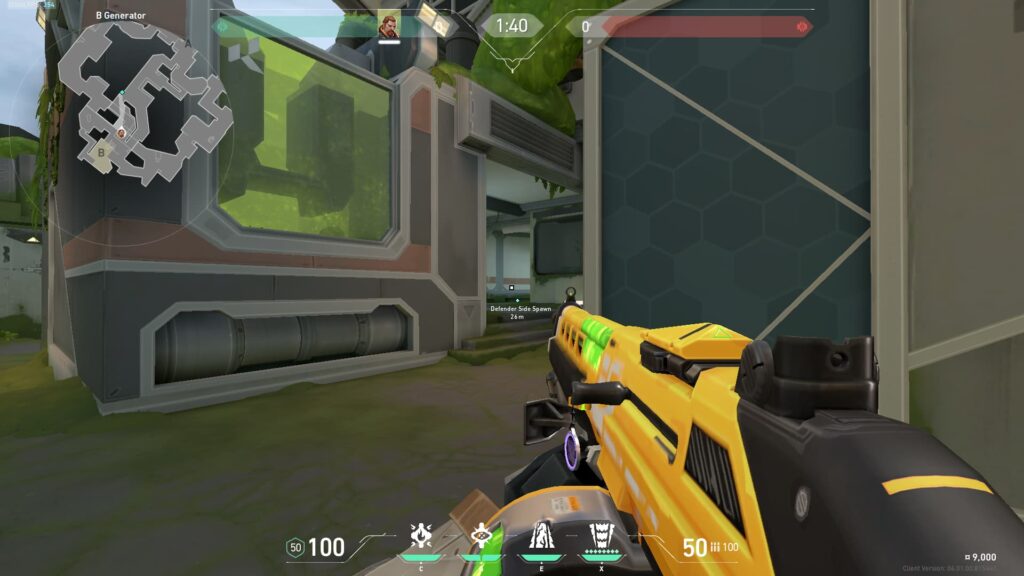
CT is short for Counter Terrorist. This is one side you'll play on in CS:GO. The term carried over into VALORANT and simply means the defending team's spawn. If a teammate calls out CT, just know they mean the side in which the defending team starts the round.
Spawn
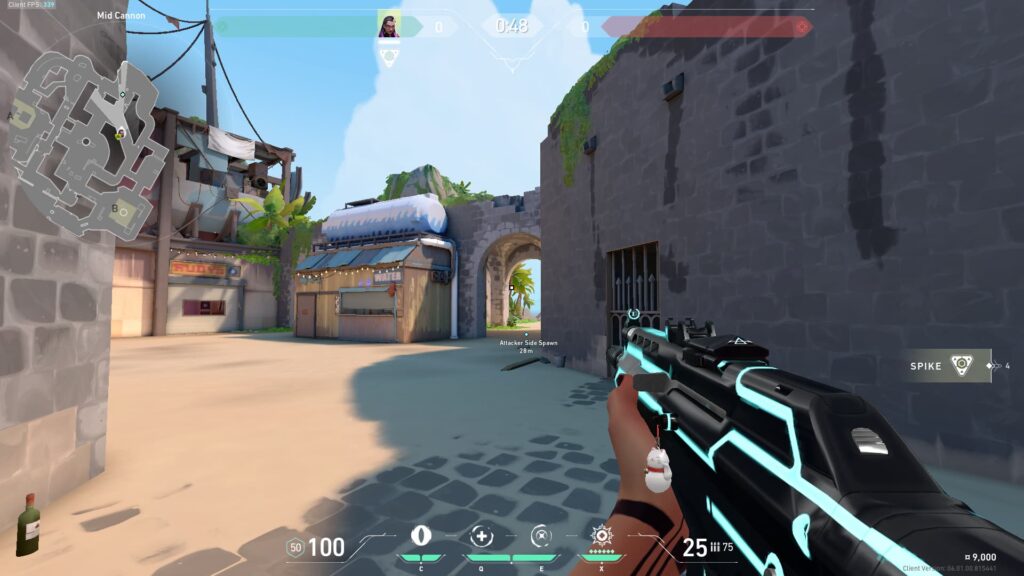
While the attacking side is called the T side, or Terrorist side, in CS:GO, VALORANT players have taken to calling it Spawn. You'll hear phrases like, "I'm rotating through Spawn," or "One's flanked through Spawn."
Heaven
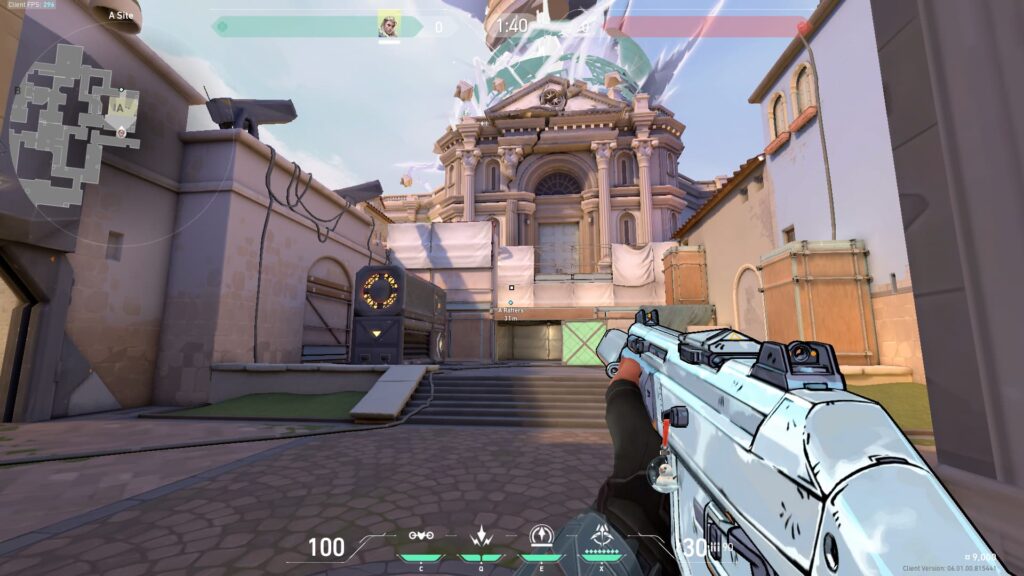
Heaven is a universal callout in VALORANT for an elevated position that overlooks a site. Your teammate may say that they spotted a player in Heaven. This means to keep your eyes upward towards whatever high ground is near the site.
Hell
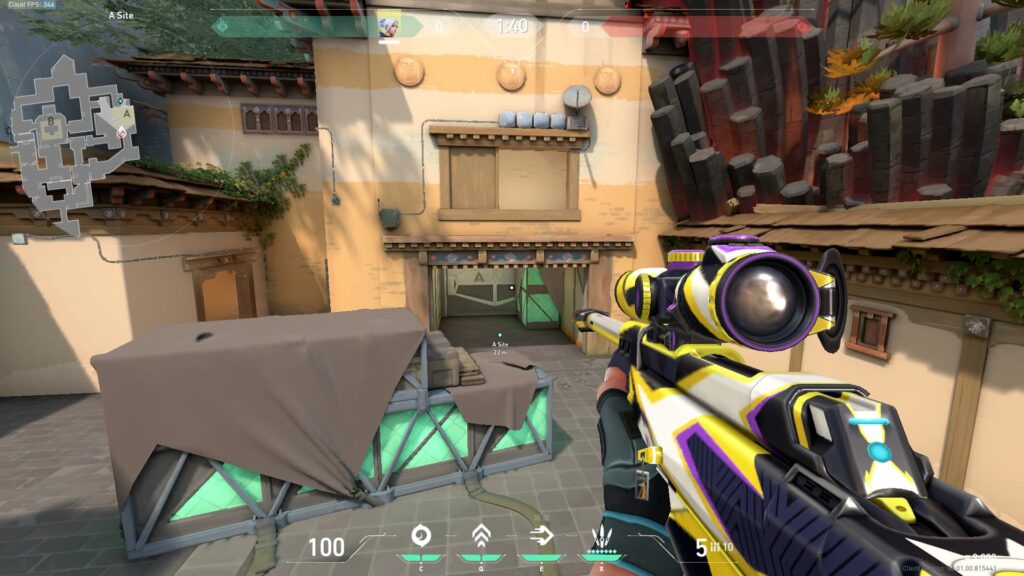
Hell is naturally the opposite of Heaven. There are a few VALORANT maps where the Heaven callout has a small area for player's to hide underneath it. This will often be referred to as Hell, because it is below Heaven. Easy enough.
Related articles
Cubby
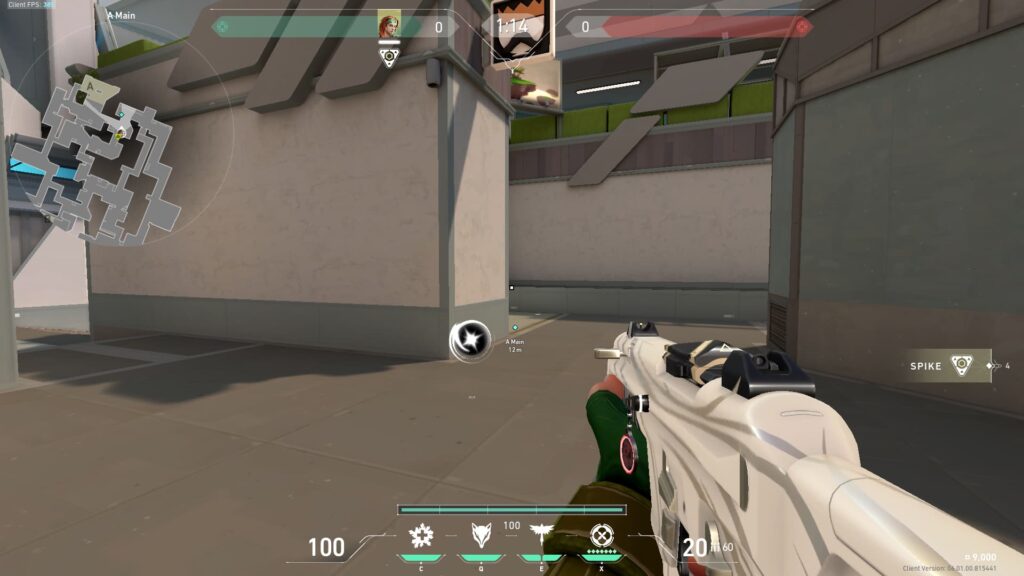
You can check each VALORANT map for the in-game names for its locations. The community sometimes comes up with their own simpler terms. If you hear the term "Cubby" from a teammate, this means a nook in a wall where an enemy can camp and wait for your team to pass for easy kills.
Long
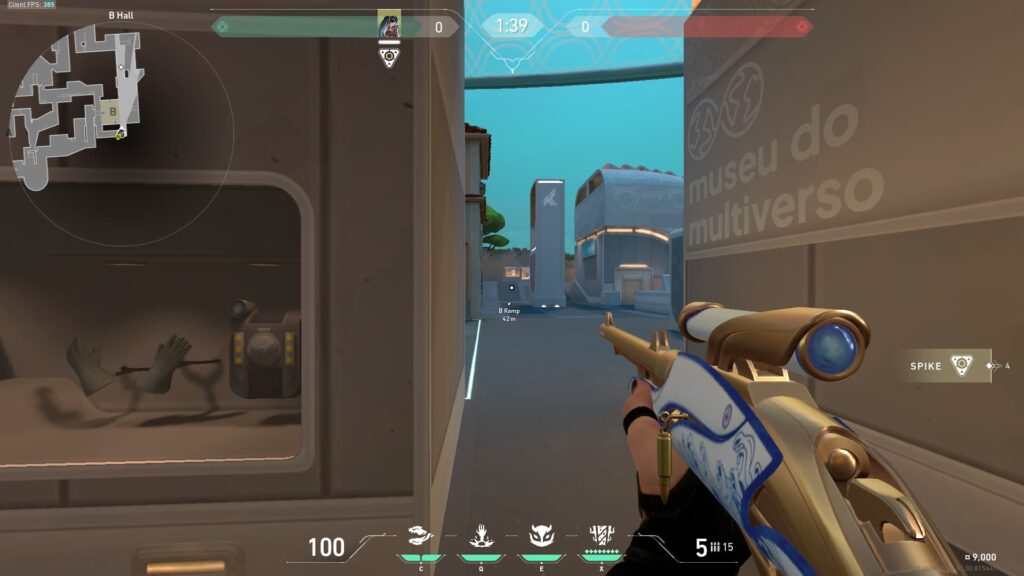
The different sites in VALORANT tend to have multiple approaches to them. One may be labeled as Long on the map or referred to as such by the player base. This basically means it is the longer pathway onto the site from the attacking side.
Short
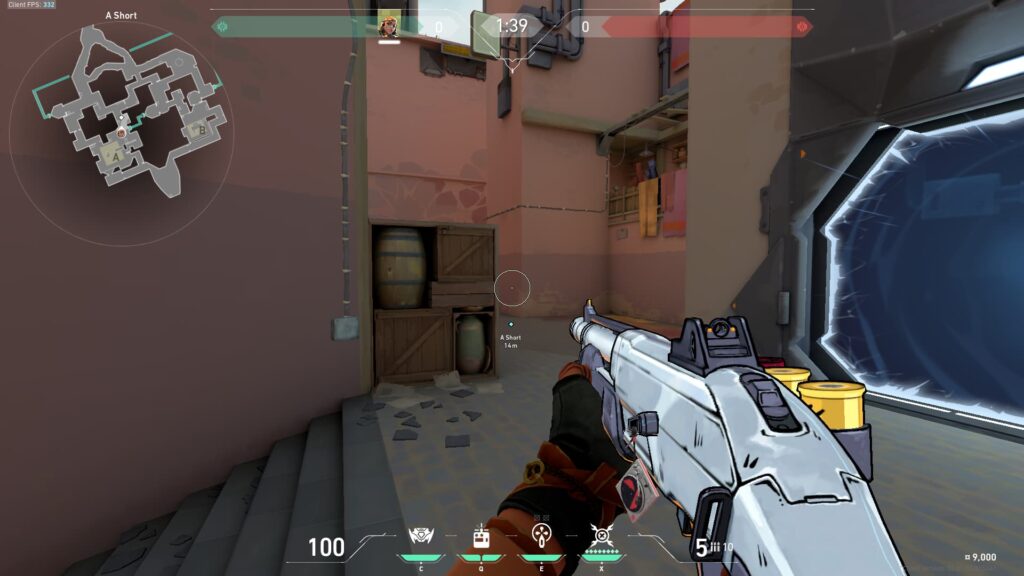
The same goes for the Short callout. This will tell you if an enemy is approaching from the shortest pathway to the site. Again, it may or may not be actually marked as Short on the in-game map.
Mid
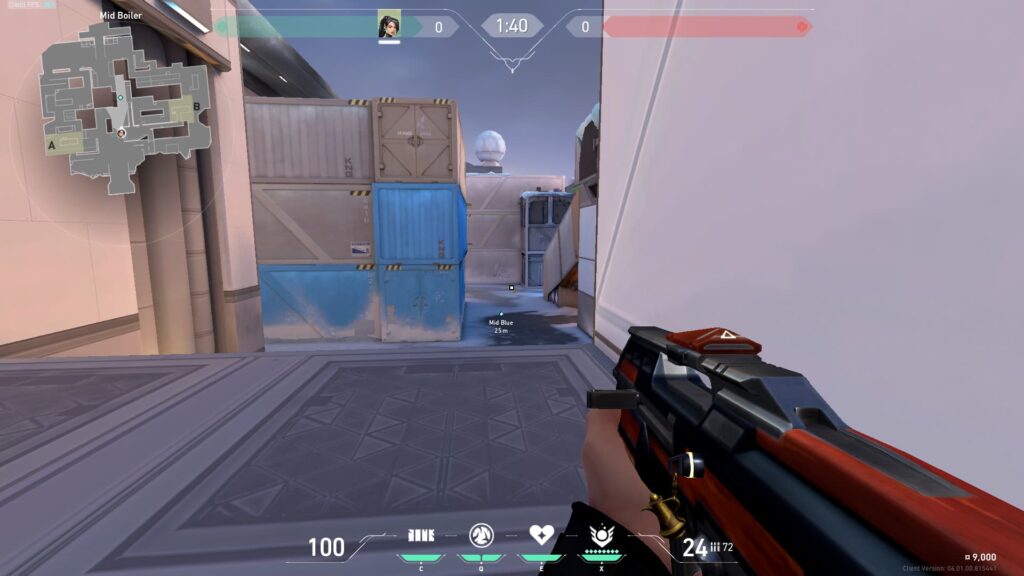
Even on maps with three sites, players will frequently label anywhere in the middle of the map as Mid. If it is a lane towards a site or in the center of the map with a way through it, Mid is what you will hear.
How and when to communicate in VALORANT
Now that you know what callouts to use, you can begin learning how to use them. Communication can be a jumbled mess in VALORANT, so you'll want to get on the same page as your teammates as soon as possible.
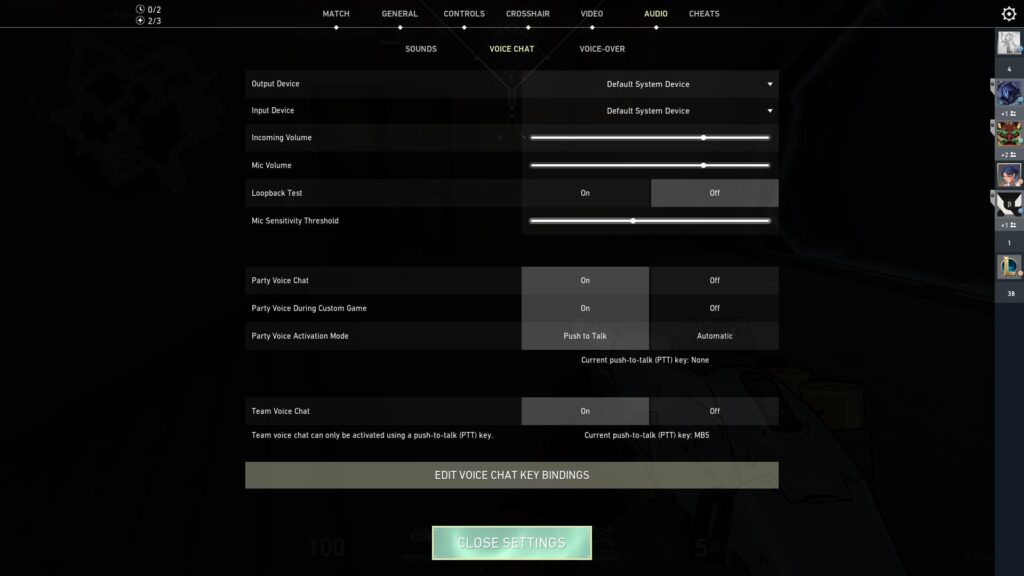
Here are some tips on how and when to communicate to your team, along with basic team etiquette:
- Bind a push-to-talk key that is easy to access and won't effect your aim or movement.
- Speak in the Agent select phase to see if any teammates have a mic.
- Discuss a strategy during the Buy Phase of each round.
- It takes 13 rounds to win a game of VALORANT, so don't be afraid to try new plays.
- It is fine to concede to another player if your strategy didn't work or they really want to try something.
- Immediately provide the location of an enemy Agent if you see them, hear footsteps, or are eliminated by them.
- Reveal any damage done to an opposing player, if not traded, upon your death.
- Ask your teammates if they want callouts when you're spectating or if they'd prefer to keep it between those still alive.
- Stay encouraging even in defeat to prevent toxicity.
- Never go silent simply because something didn't go right. There's always a chance to fight your way back to victory.
What to do if comms are lacking
Unfortunately, VALORANT does find itself with communication problems like many online games. There will always be trolls, players who are easily tilted, or those that don't have a mic or simply don't speak for one reason or another.
You can still make the most out of a game, however, if comms have broken down or are nonexistent. Even if they aren't communicating, they can more than likely still hear you. Do your best to keep giving callouts. Who knows? You might be the spark that ignites their voice.

If comms just aren't happening regardless of what you do, ask your team in the chat to type out location callouts or the number of damage dealt to an Agent. These can make a huge difference. Any info is better than no info at all.
The last thing you can do if your team has no communication whatsoever in VALORANT is to play with them. Watch your minimap closely to see where they are going. Try to anticipate their rotations or pushes. Stay by them as often as you can to trade, execute, or set up together.